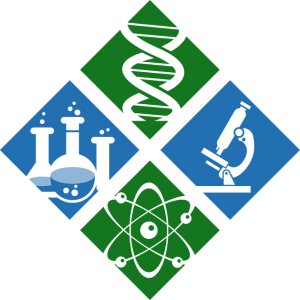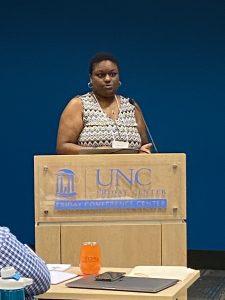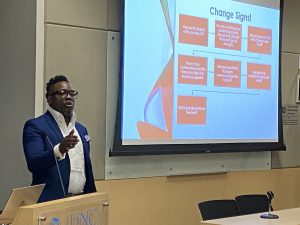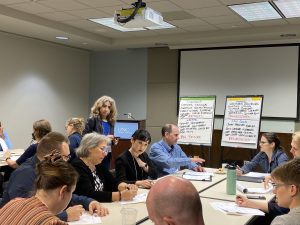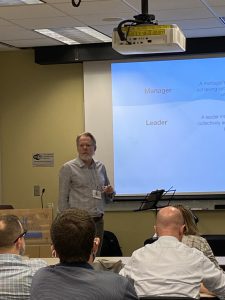Be the Leader Your Team Wants

Brett Farmiloe, CEO at Terkel, recently shared a list of actions to become a better leader. Among his suggestions, three stood out as particularly impactful: delegating authority instead of tasks, being a mentor instead of a manager, and hiring colleagues instead of employees. Implementing these strategies can significantly boost motivation and engagement among your team members.
1. Delegate Authority, Not Just Tasks
Empower Through Trust
When you delegate authority rather than just tasks, you demonstrate trust in your team members. This approach empowers them to make decisions and develop their leadership skills. Here’s how you can implement this strategy:
- Clearly Define Goals: Instead of assigning specific tasks, outline the desired outcomes. Let your team members figure out the best way to achieve these goals.
- Encourage Decision-Making: Give team members the autonomy to make decisions related to their tasks. Provide guidance when needed, but avoid micromanaging.
- Support and Monitor: While giving authority, remain available for support. Regularly check in to see how things are progressing and offer assistance if required.
- Celebrate Successes: Recognize and celebrate when team members successfully handle their responsibilities. This reinforces their confidence and encourages further growth.
2. Be a Mentor, Not Just a Manager
Foster Growth and Learning
As a mentor, you focus on helping your team members learn and expand their skill sets. This means recognizing that mistakes will happen and using them as learning opportunities. Here’s how you can adopt a mentorship approach:
- Offer Constructive Feedback: Provide feedback that helps team members improve. Focus on what they did well and where they can grow.
- Encourage Skill Development: Identify areas where team members can develop new skills and provide opportunities for training and growth.
- Be Approachable: Create an environment where team members feel comfortable coming to you with questions or concerns.
- Guide Through Mistakes: When mistakes occur, help team members understand what went wrong and how to avoid similar issues in the future.
- Set Development Goals: Work with team members to set personal and professional development goals, and support them in achieving these objectives.
3. Hire Colleagues, Not Just Employees
Create a Collaborative Culture
Treating those who report to you as colleagues rather than subordinates can be incredibly powerful. By viewing and introducing them as equals, you foster a sense of collaboration and respect. Here’s how you can implement this strategy:
- Promote Inclusivity: Encourage team members to share ideas and opinions, regardless of their position in the hierarchy.
- Use Collaborative Language: When introducing team members, use language that emphasizes partnership. For example, say "this is Joe, we work together" instead of "this is Joe, he works for me."
- Build Relationships: Take time to get to know your team members personally. Understand their strengths, interests, and aspirations.
- Acknowledge Contributions: Regularly recognize and appreciate the contributions of your team members, making them feel valued and respected.
- Foster Team Bonding: Create opportunities for team-building activities that help strengthen relationships and build trust among team members.

Effective Leadership Is About People
At its core, effective leadership is about understanding and valuing people. The upcoming ALMA conference, Total Leadership Training Experience, offers several workshops and presentations designed to help you build the people skills needed to be the leader your team wants. Here are a few highlights:
The Art of the Question
A half-day workshop by Sean Grace of Grace Media Works.
Learn to use questions to engage, challenge, and motivate your team.
Building a Culture of Inclusion
Marie Mitchell, Professor of Organizational Behavior at UNC Kenan-Flagler School of Business
Discover strategies to create an inclusive and supportive work environment.
The Lab Manager's Survival Guide to Dealing with Difficult People
Tamara Perry, Marketing and Sales Manager at Labtopia
Gain practical tips for managing and resolving conflicts effectively.
Delegate- Develop, Don’t Dump
Bill Spretizer, Sr. Partner at Geek Leadership
Learn how to delegate in a way that promotes development, rather than simply offloading tasks.
Diversity, Equity, and Inclusion in the Laboratory
Rhonda Harrison, Biopharma Relations Consultant
Explore the importance of diversity and how to promote equity and inclusion in your lab.
Being an Emotionally Intelligent Geek Leader
A half-day workshop by Lori Todd, Sr. Partner at Geek Leadership.
Enhance your emotional intelligence to better connect with and lead your team.
Join us at ALMA 2024 and take advantage of these opportunities to refine your leadership skills. Become the leader who inspires, motivates, and truly connects with their team. Together, we can build a future where leadership is defined by empathy, trust, and collaboration.
